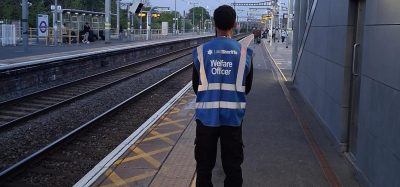UK’s Office of Rail and Road publishes new accessible travel guidance
Posted: 16 September 2020 | Global Railway Review | No comments yet
ORR’s new guidance focuses on improving the experience of passengers with reduced mobility on rail replacement services during disruption.


Credit: Office of Rail and Road
The Office of Rail and Road (ORR) in the UK has published its new accessible travel guidance, which introduces new rules for train operators to maximise the use of available buses and coaches by passengers with reduced mobility during rail disruption. There is also requirements for improved information so that passengers know where and when accessible vehicles will be operated.
The vast majority of buses used for rail replacement are accessible to passengers with reduced mobility (for example, equipped with low floors and/or ramps for wheelchair users). But, historically, the opposite has been true of coaches (where a wheelchair lift is required).
As the UK regulator, ORR expects all train operators to take appropriate steps to comply with Public Service Vehicle Accessibility Regulations (PSVAR) and is working with the Driver & Vehicle Standards Agency (DVSA), which enforces these regulations. Both organisations are planning a Memorandum of Understanding (MoU) to clarify and strengthen the respective monitoring and compliance activities.
Following consultation and detailed discussions with stakeholders – including the Equality and Human Rights Commission (EHRC) and the Disabled Persons Transport Advisory Committee – ORR’s revised guidance now requires:
- New rules to ensure that train operators using rail replacement services seek to secure accessible vehicles from bus and coach companies
- Improved passenger information during disruption to ensure that passengers know where and when accessible buses and coaches will be operated
- Reinforcement of an existing requirement that, where needed, passengers are offered an appropriate alternative arrangement, including a different form of accessible road transport, such as a taxi
- For planned disruption, ORR has introduced a new requirement that waiting times for rail replacement services should be similar, irrespective of whether the vehicle used is a bus, coach, taxi or other alternative
- Explicit references to the legal requirement for rail replacement bus and coach services to comply with Public Service Vehicle Accessibility Regulations (PSVAR), unless a special authorisation is obtained from the Transport Minister.
Deputy Director of Consumers at the Office of Rail and Road, Stephanie Tobyn, said: “ORR’s objective is to ensure that all passengers can request and receive assistance to travel safely with confidence and ease. Our updated guidance makes clear that train companies are responsible for obtaining accessible vehicles during rail disruption, and for providing passengers with useful information on where and when accessible vehicles will be used. In all circumstances, whether the vehicle used is a bus, coach or taxi, waiting times for passengers should be similar.”
“We have also written to the rail industry setting out a range of additional proposals and suggestions for further improvements from respondents to our public consultation, as well as our proposal for an industry forum to help identify and better manage the availability and use of PSVAR-compliant vehicles at times of high demand,” she added.
Related organisations
Disabled Persons Transport Advisory Committee, Driver & Vehicle Standards Agency (DVSA), Equality and Human Rights Commission (EHRC), Office of Rail and Road (ORR)







